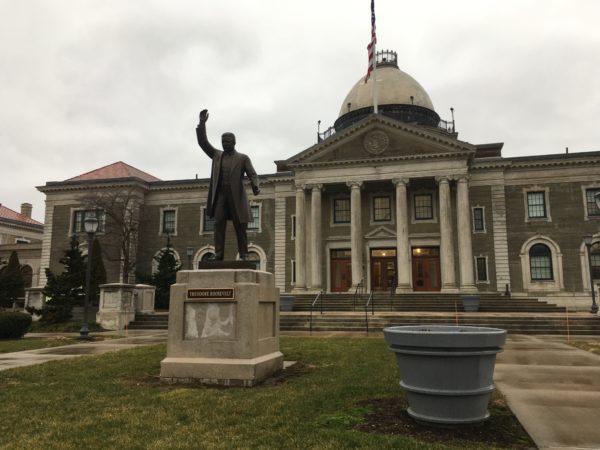
Nassau County will be disbursing some of its opioid lawsuit settlement funds to provide grants to local organizations in the fight against the drug epidemic, but Democrats are calling for more.
“The opioid settlement was a punitive judicial outcome with a very clear purpose,” Nassau County Legislature Minority Leader Delia DeRiggi-Whitton (D–Glen Cove) said. “We are losing people at an alarming rate, and many families across our County are continuing to suffer as their loved ones continue to struggle with addiction.”
Republican County Executive Bruce Blakeman announced Monday the county would be awarding $6.8 million of its opioid settlement funds, including $2.5 million to the Nassau University Medical Center to bolster its drug treatment program.
Nassau University Medical Center Interim President and CEO Megan Ryan said the money will be going to their patients, who numbered about 20,000 last year. She said these funds will help them provide care for even more patients.
The hospital has a chemical dependency unit, and the funds will go towardrenovating and establishing new rooms and services for patients.
“And it’s outdated so it will give it a nice face-lift and will just make it nicer for our patients,” Ryan said.
The funds will also go towards a 24-hour central referral unit, which will assist patients experiencing medical emergencies or crises related to their drug use. Ryan said this will aid in streamlining the hospital services.
Nassau University Medical Center received opioid funds from the county last year for its programming, but Ryan said the additional funds are still needed by the hospital. Ryan said the center is grateful for the grant.
“So having this money here… it’s super important, it’s great, it’s very, very needed,” Ryan said.
Another $2 million will be granted to Catholic Health to create a a mental and behavioral health program at Mercy Hospital in Rockville Centre, $1.8 million for an opioid public service campaign and $500,000 for Nassau County Police to advance its fentanyl testing technology.
The county executive also said he would commit to spending $60 million for drug treatment, prevention and education over the next four years.
Nassau County was awarded more than $92.5 million in opioid lawsuit settlement money.
DeRiggi-Whitton said the opioid grant announcement by Blakeman was a “disappointment” as it only brings the county’s spending of the money nearly to $7 million after what she called two years of delays.
She has long advocated for the continued disbursement of the county’s opioid settlement funds, which was a pivotal component of her re-election campaign last year.
The minority leader has called for the full funding promised to these organizations and for additional funding to be allocated.
“To have just paid about one-seventh of our opioid funding more than two years later is an insult to every family that continues to struggle with the opioid epidemic. This money cannot be used for anything else other than addressing opioid addiction, and I feel Nassau must begin distributing this funding at a pace that meets the urgency of this crisis,” she said.
“Unfortunately, this administration has yet to demonstrate through its actions a true understanding of the needs of those who are seeking treatment,” DeRiggi-Whitton concluded.






